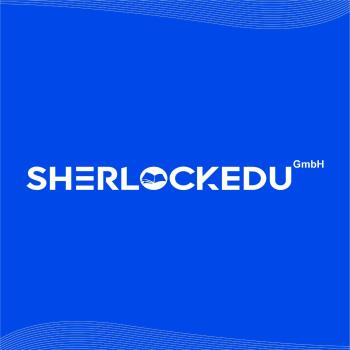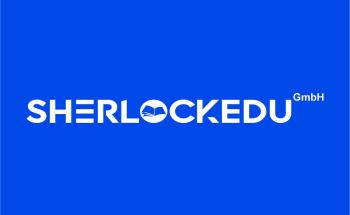
Third-party on-site course
INTEGRATIVE STEM EDUCATION AT SCHOOLS-VIENNA
INTRODUCTION
Scientific subjects are of great importance. The demand for a qualified workforce in technology and research intensive sectors is and will remain at a high level, with an impact on the demand for science, technology, engineering and mathematics (STEM) related skills. Greater efforts must now be made to highlight STEM as a priority area of education, and increase engagement at all leve
30.09.2024
Multiple locations
Description
- DAY 1
- What is STEM
- Common use of STEM at Schools
- Philosophy of Interdisciplinary Lesson Plans
- Backward Design,
- DAY 2
- Subject-Based and Problem-Based Learning,
- Collaborative-Based Learning,
- Entrepreneurially-Minded Learning
- DAY 3
- Classroom preparation recommendations,
- STEM based Maths Lessons
- STEM based Science Lessons
- Integrated math and science using physical constraints,
- DAY 4
- STEM and technology integrated lessons
- STEM methodology and assesment of STEM based activities
- Using mobil devices with STEM
- Assessment answer keys, project solutions,
- DAY 5
- Tools that can be used to plan and manage STEM projects
- Units of measurement, coordinate system, minimum, maximum, mean and linear relationship.
Learning objectives
COURSE OUTCOMES
- Fosters ingenuity and creativity: Ingenuity and creativity can pair with STEM and lead to new ideas and innovations
- Builds resilience
- Encourages experimentation
- Encourages teamwork
- Encourages knowledge application
- Encourages tech use
- Teaches problem-solving
- Encourages adaption
- Encourages tech use:
- STEM learning teaches kids about the power of technology and innovation. So, when students encounter new technologies, they will be prepared to embrace them, instead of being hesitant or fearful. This will give them the upper hand in the global landscape, as the world is becoming increasingly tech-centered.
- Teaches problem-solving:
- STEM education teaches students how to solve problems by using their critical thinking skills. By engaging in STEM learn experiences, students learn how to examine problems and then create a plan to solve them.
- Encourages adaption:
- To succeed in life, students have to be able to apply what they have learned to a variety of scenarios. STEM education teaches them to adapt the concepts that they learn to various iterations of a problem or issue.
Methodology & assessment
Methodology
Pedagogical Approaches: Teacher training courses typically employ various pedagogical approaches to model effective teaching practices. This may include lectures, interactive seminars, workshops, and hands-on teaching experiences.
Practical Teaching Experience: Practical teaching experience is a fundamental component of teacher training. Participants often have opportunities to observe experienced educators and engage in actual teaching in classrooms or educational settings. Feedback and guidance from mentors are essential during these experiences.
Collaborative Learning: Collaborative learning is often encouraged in teacher training courses. Participants may work in groups to develop teaching materials, lesson plans, and teaching strategies. Collaborative projects can promote the exchange of ideas and best practices.
Reflective Practice: Reflective practice is a crucial aspect of teacher training. Participants are encouraged to reflect on their teaching experiences, analyze their teaching methods, and consider how to improve their practice. Journals, written reflections, and discussions are common tools for fostering reflective practice.
Assessment
Written Assignments: Teacher training courses often include written assignments, such as research papers, case studies, or essays, on topics related to education and teaching methods.
Examinations: Some teacher training courses may include written examinations to assess participants' understanding of pedagogical theories, educational psychology, and other relevant subjects.
Professionalism and Communication: Assessment may also consider participants' professionalism, communication skills, and ability to collaborate with colleagues, parents, and students.
Feedback and Self-Assessment: Regular feedback from mentors and self-assessment are crucial components of teacher training assessment. Participants are encouraged to use feedback to improve their teaching skills
Pedagogical Approaches: Teacher training courses typically employ various pedagogical approaches to model effective teaching practices. This may include lectures, interactive seminars, workshops, and hands-on teaching experiences.
Practical Teaching Experience: Practical teaching experience is a fundamental component of teacher training. Participants often have opportunities to observe experienced educators and engage in actual teaching in classrooms or educational settings. Feedback and guidance from mentors are essential during these experiences.
Collaborative Learning: Collaborative learning is often encouraged in teacher training courses. Participants may work in groups to develop teaching materials, lesson plans, and teaching strategies. Collaborative projects can promote the exchange of ideas and best practices.
Reflective Practice: Reflective practice is a crucial aspect of teacher training. Participants are encouraged to reflect on their teaching experiences, analyze their teaching methods, and consider how to improve their practice. Journals, written reflections, and discussions are common tools for fostering reflective practice.
Assessment
Written Assignments: Teacher training courses often include written assignments, such as research papers, case studies, or essays, on topics related to education and teaching methods.
Examinations: Some teacher training courses may include written examinations to assess participants' understanding of pedagogical theories, educational psychology, and other relevant subjects.
Professionalism and Communication: Assessment may also consider participants' professionalism, communication skills, and ability to collaborate with colleagues, parents, and students.
Feedback and Self-Assessment: Regular feedback from mentors and self-assessment are crucial components of teacher training assessment. Participants are encouraged to use feedback to improve their teaching skills
Certification details
- Completion Certificate: Upon successfully completing a teacher training course, you will typically receive a completion certificate or diploma from the training provider or institution. This certificate acknowledges your participation and successful completion of the training.
- Course Duration: The duration of teacher training courses can vary widely. Some may be short-term workshops or seminars, while others may be more comprehensive and span several weeks or months. The certificate may indicate the total number of hours or credits completed.
- Content and Curriculum: The certificate should outline the key topics, content, and skills covered during the training. This information helps future employers or educational institutions understand the scope of your training.
- Credits or Continuing Education Units (CEUs): In some cases, teacher training courses may offer academic credits or Continuing Education Units (CEUs). These credits can be valuable for professional development and may be recognized by educational authorities or institutions.
- Language of Instruction: If the teacher training course is conducted in a language other than your native language, the certificate may indicate your language proficiency level or the language in which the training was delivered.
- Evaluation and Assessment: Teacher training courses often involve assessments or evaluations of your performance. The certificate may include information about your performance in the training, such as grades or evaluations.
- Recognition and Accreditation: Ensure that the teacher training course and the institution providing it are recognized and accredited by relevant educational authorities or professional bodies. This can affect the credibility and transferability of your certificate.
- Pedagogical Practices: If the training includes practical teaching experience or classroom observations, the certificate may highlight your proficiency in specific pedagogical practices or teaching methodologies.
Pricing, packages and other information
-
Price:400Euro
Additional information
-
Language:English
-
Target audience ISCED:Primary education (ISCED 1)Lower secondary education (ISCED 2)Upper secondary education (ISCED 3)
-
Target audience type:TeacherICT CoordinatorCompany staff
-
Learning time:25 hours or more
Past sessions
More courses by this organiser

On-site
SOCIAL and EMOTIONAL LEARNING-BERLIN (OID Code E10143856)
Next upcoming session
-
Multiple locations

On-site
DIGITAL HORIZONS - EQUIPPING EDUCATORS FOR TECHNOLOGY-INTEGRATED LEARNING-BERLIN (OID Code E10143856)
Next upcoming session
-
Multiple locations

On-site
COMMUNICATION AND EMPHATY for STRENGTHENING LINKS to SCHOOL -BARCELONA
Next upcoming session
-
Multiple locations

